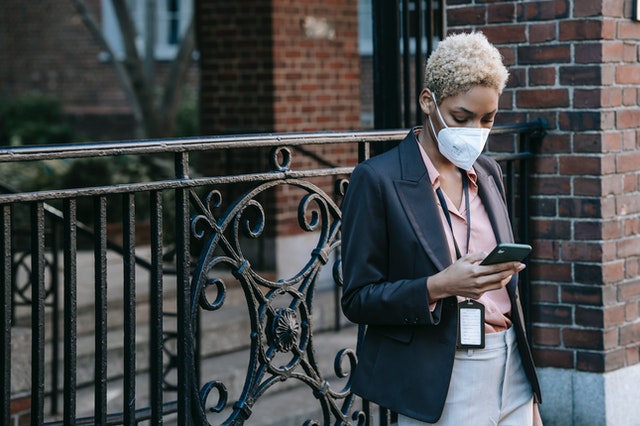Green Line Business Group, the Newark-based software development company, has always been focused on making technology with impact.
The Black-owned business — founder and CEO Anthony Wright is also majority owner of the company — got its name as an antonymic play on redlining, the discriminatory practice of denying loans or housing based on race. The company is parent to mission-minded businesses such as Danio Diary, a digital tool that gives users more control over their health care, and Eye Need a Witness, which allows users to alert others in the area if they’re being mistreated by police or civilians.
“In Tony’s vision, the technologies impact health, safety and support, like the three pillars of humanity,” said John Hedberg, VP of Green Line and president of Danio Diary. “[The apps] were all independent originally. We’re a small organization — we tend to focus on one thing for a while then go to another, then another. But the social challenges that are going on right now kind of aggregated those technologies into one purpose, one initiative.”
That new initiative is R.E.S.P.E.C.T. US, involving technology, socioeconomic issues, education and public policy. Its name stands for “race, equality, security, policy, education, care and technology unifying safety.”
“We were seeing the awareness that was being gained through the Black Lives Matter movement and we looked at the very powerful technology tools that we had at our disposal here,” said Bill Angus, VP of operations for Green Line. “We said, ‘Let’s turn this awareness into action. What can we do right now that will positively impact the community and help them? Really empower them?”
First, they decided to provide their tech for free.
Eye Need a Witness was originally designed as a subscription service to capture events where marginalized people are publicly bullied or brutalized on video for use in court cases, and previously focused on colleges as clients. It’s now free for those who don’t live on a campus that uses the tool with a code through R.E.S.P.E.C.T. US. Danio Diary already didn’t charge patient users.
“All of this boils down to accountability,” Angus said. “Safety and health accountability.”
Danio Diary, which stepped up as a vital application for seniors and their family members when COVID-19 hit senior homes hard last year, has also broadened its reach far beyond elderly healthcare patients, and will be integrated into the larger R.E.S.P.E.C.T. US program.
“Just before COVID hit, we had completed a program with Family SHADE, a nonprofit that helps children with special healthcare needs,” said Hedberg. “That helped us identify particular mechanisms we had in Diary like medication and condition tracking that made a big difference in enabling the caregivers and parents to communicate to the different care providers across their child’s continuum of care.”
Danio Diary is useful for healthcare providers by giving them a rundown — literally, a diary — of how the patient has been doing between doctor’s visits, which are now often 15-minute telemedicine visits. They can see the patient’s ongoing physical and emotional state, medication use and communications with family members done through the app.
“We have been working very hard to lobby for the expansion of the definition of ‘telehealth’ to incorporate applications such as Danio Diary,” said Angus. “We’ve been critical in chronicling everything that is happening outside of the doctor-patient relationship, and if that information is able to be provided on a continual updating basis, it can be critical for earlier health interventions on behalf of the patient. It will continue to level the playing field with information exchange and better health outcomes.”
In addition to the tech, R.E.S.P.E.C.T. US plans a series of summits, held at Historically Black Colleges and Universities (HBCUs) and open to the public. The first summits will be held in the fall — in-person if the COVID-19 vaccination situation allows it, virtual if it does not. The multi-day experiences will include panels with healthcare, law enforcement and government professionals, who will talk and listen to students and community members about what reforms may be needed. The outcomes of the summits will be the basis of lobbying for new policies in the communities where the events take place. Workforce development, mentorship and company equity assessments will be among the summits’ other offerings.
“We look at it as a holistic approach to an overall very challenging set of issues,” said Angus.
A virtual preview of the R.E.S.P.E.C.T. US HBCU summit is planned for April 30. It will be a two-hour workshop on unconscious bias as it relates to hiring practices in business.
“This will be an example of the quality of the content that we will launch in the fall,” said Angus. Look for details to come on R.E.S.P.E.C.T. US’ website.







